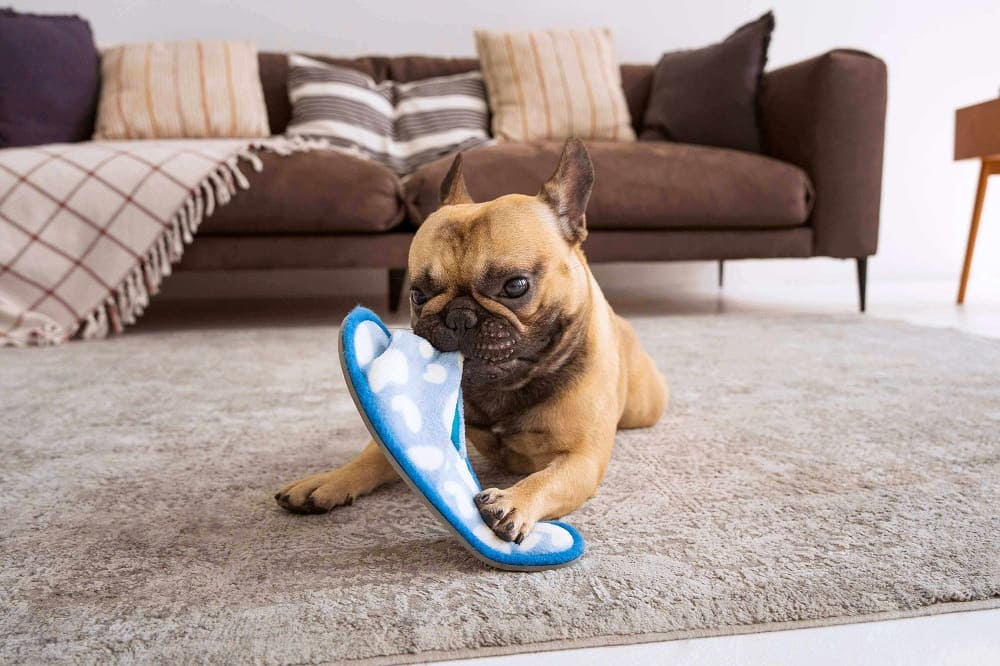One of the most common behavioral problems that dog parents face are related to chewing and biting. From our years of experience with training dogs, we have all the tips and tricks that have proven to work with our client’s dogs.
As with most problems, you have to look for the reasons that triggered the behavior rather than just deal with the apparent symptoms. Chewing is a natural behavior for dogs; our job is to simply direct that behavior towards appropriate items, rather than give them the freedom to make their own choice.
Dogs chew for many reasons
Puppies
Puppies use their mouth to explore everything around them. When they start teething they chew to ease discomfort.
Puppies chew on anything, from electric cords, plants, to bottles. They have no capacity to judge the danger of their actions. It’s the dog parent’s responsibility to provide appropriate chew toys and teach them to chew only those toys.
To accomplish this, the dog parent needs to get a variety of chew toys (pressed bone hide, cow ears and hooves), as these are both satisfying and enjoyable to dogs. These types of chew toys are natural and do not chip into small sharp particles that can be swallowed.
It’s important to note that you should not give all of the toys to your dog at once. Hand them one at a time to develop preference. Change the item once every few days to keep the puppy interested in chewing them.
Do not make the mistake of giving him an old shoe or sock, as this will simply be promoting the undesired behavior and dogs cannot differentiate between new and old shoes. All personal belongings should remain off limits to him.
Should your puppy chew on an item other than his chew toys, give him a loud and firm “NO”. Take away your now chewed prized possession and give him his toy. Verbally encourage him while playing with it. Remember, if you have not caught him in the act of chewing your shoe, then your correction is inappropriate and unjustified, in terms of correcting the problem.
Adult Dogs
Adult dogs on the other hand chew, for other different reasons. Some chew for fun, while others chew out of boredom, or simply to get your attention when they feel neglected. Clients tell us that their dog picks their items specifically out of all the things of the family available at the house and chews on it. In this case, the dog was simply trying to reach his dog parent in his own way. It’s their attention he wants, and he was in no way punishing them.
Dogs are active animals that strive for affection. A dog that is used to a highly active life style will chew out of boredom if his dog parent left him in the house for a few days. In order to correct this issue, an owner needs to spend enough time with their dog and give them plenty of attention.
We suggest providing chew toys for him while he is left alone, and perhaps even crate him till he stops this undesired behavior. Dog parents with busy schedules may even consider sending their pet to doggy day care two or three days a week to work off excess energy and socialize with other dogs.
Finally, remember that it is only fair that you give your dog the attention he needs to avoid triggering unwanted behavior; be a responsible dog parent, your dog’s whole world revolves around you.



